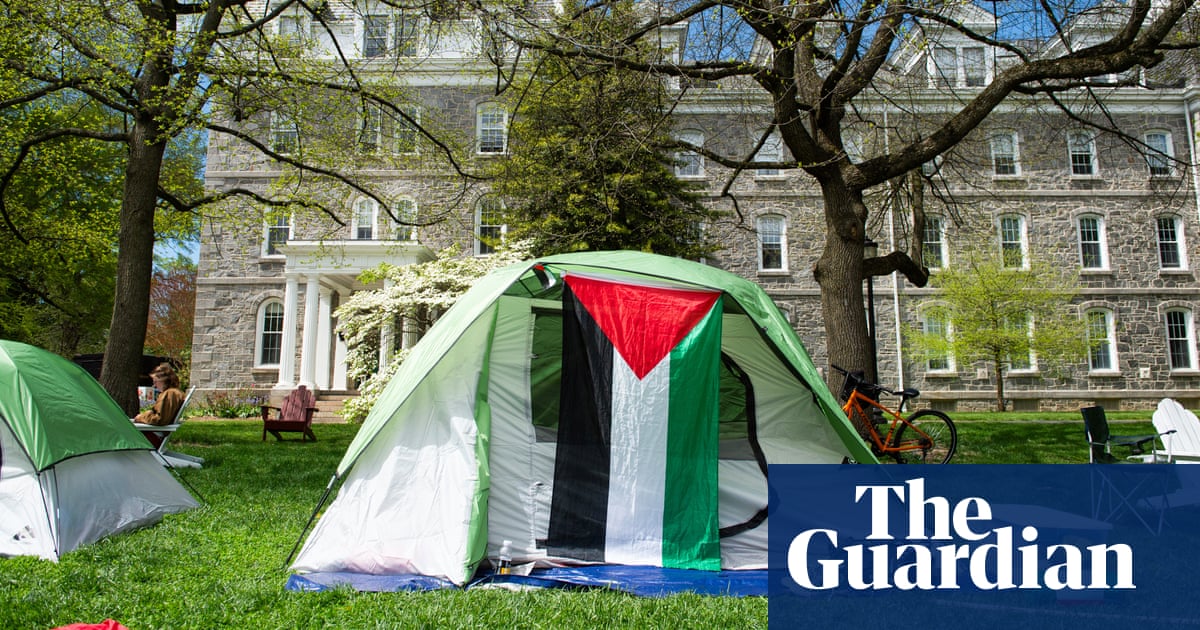Over the first two days of May, a total of six Swarthmore College students were interim suspended for the creation of a campus encampment earlier in the week. The students in Swarthmore,Pennsylvania, were suspended without due process and were told to evacuate from campus, said Swarthmore’s Students for Justice in Palestine (SJP) in a2 May statement.
Of the six students who were temporarily suspended, four werepeople of colorand three were first-generation, low-income students, the statement continued: “This is part of a disturbing trend of Swarthmore exploiting the vulnerabilities of student protesters on the basis of racialized discrimination.” The students on interim suspension are banned from attending college events or stepping foot on campus. Swarthmore SJP did not respond to a request for comment by the publication date.
In a 1 Maystatementto the campus community, Swarthmore College’s president, Valerie Smith, said that the protesters had vandalized campus property. “Should they continue to fail to disperse and violate the college’s policies and the law,” Smith said, “we will have no choice but to escalate our response as we consider all actions to bring the encampment to an end.”
SJP used social media to encourage activists outside of the college to join the encampment, Smith said, and they ignored repeated requests to vacate Trotter Lawn, where they erected the camp. “We informed students multiple times, both verbally and in writing, that they were violating several policies in the student code of conduct. Students were instructed to disband the encampment and leave Trotter Lawn, and repeatedly warned that failure to do so would lead to interim suspensions.”
Swarthmore College isone of 60 schoolsunder investigation for what the Trump administration considers antisemitic harassment on campus.
A handful of higher-education institutions have started campus encampments this spring in a revival of last year’s pro-Palestinian movement in opposition to Israel’s war on Gaza, where at least62,000 Palestinianshave been killed since 7 October 2023, when roughly 1,100 Israelis were killed. But this year, pro-Palestinian campus protests have been dampened by crackdowns and punitive measures from theTrump administration.
On Yale University’s campus in late April, hundreds of student protesters set up an encampment thatdispersedwithin a couple of days. On 22 April,44 Yale studentswere arrested, with some of them facingdisciplinary actionfrom the university. And at Tulane University, seven students arefacing punitive measuresincluding suspension or expulsion for attending an off-campus protest in New Orleans demanding the release of the pro-Palestinian former Columbia University student Mahmoud Khalil.
On Swarthmore College’s campus, SJP memberssaidthat they plan to remain in their encampment: “These repudiations are inconsequential when we remember what we are here for: the hundreds of thousands of Palestinian people who have been martyred and displaced yet continue to resist in the face of genocidal violence.”
